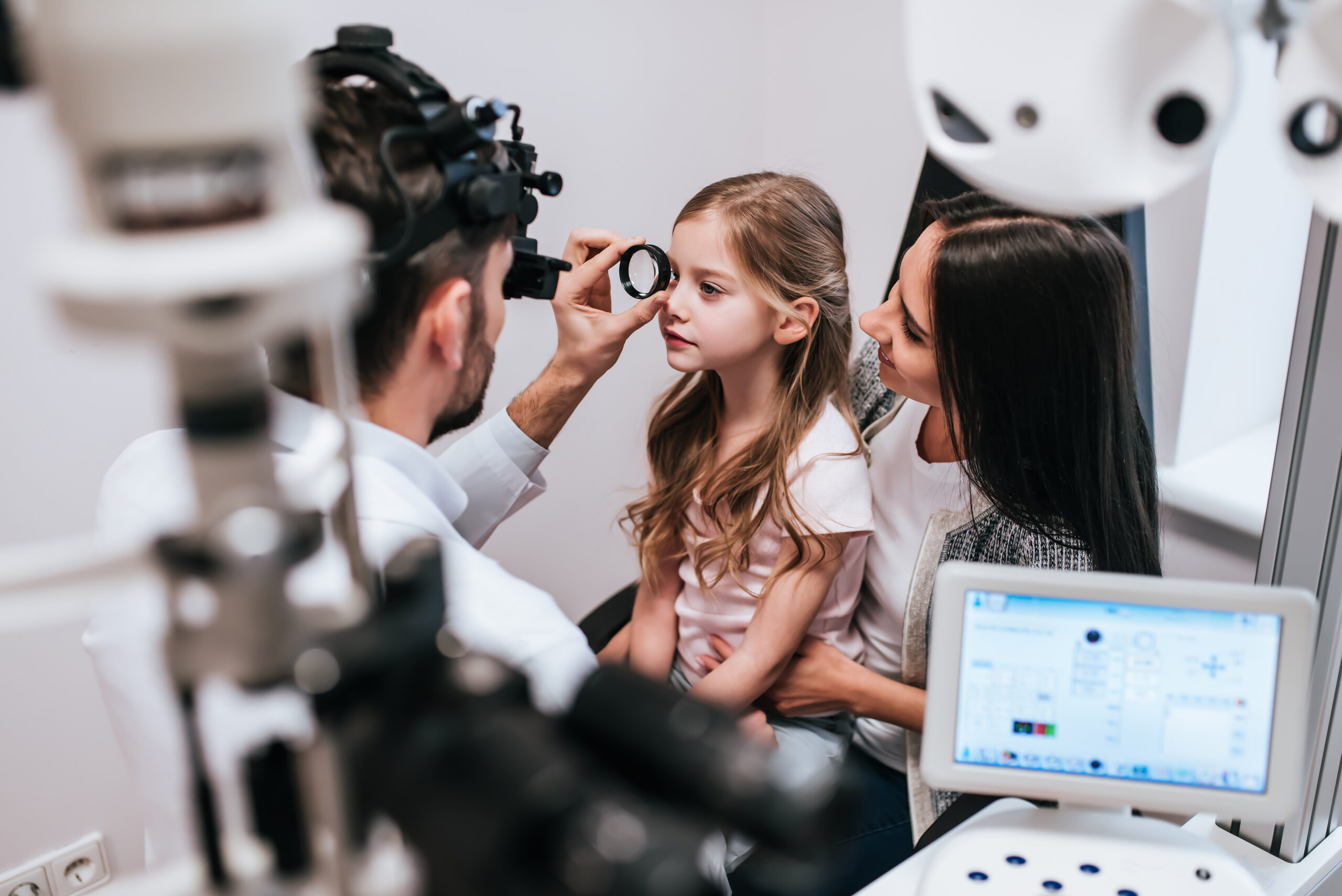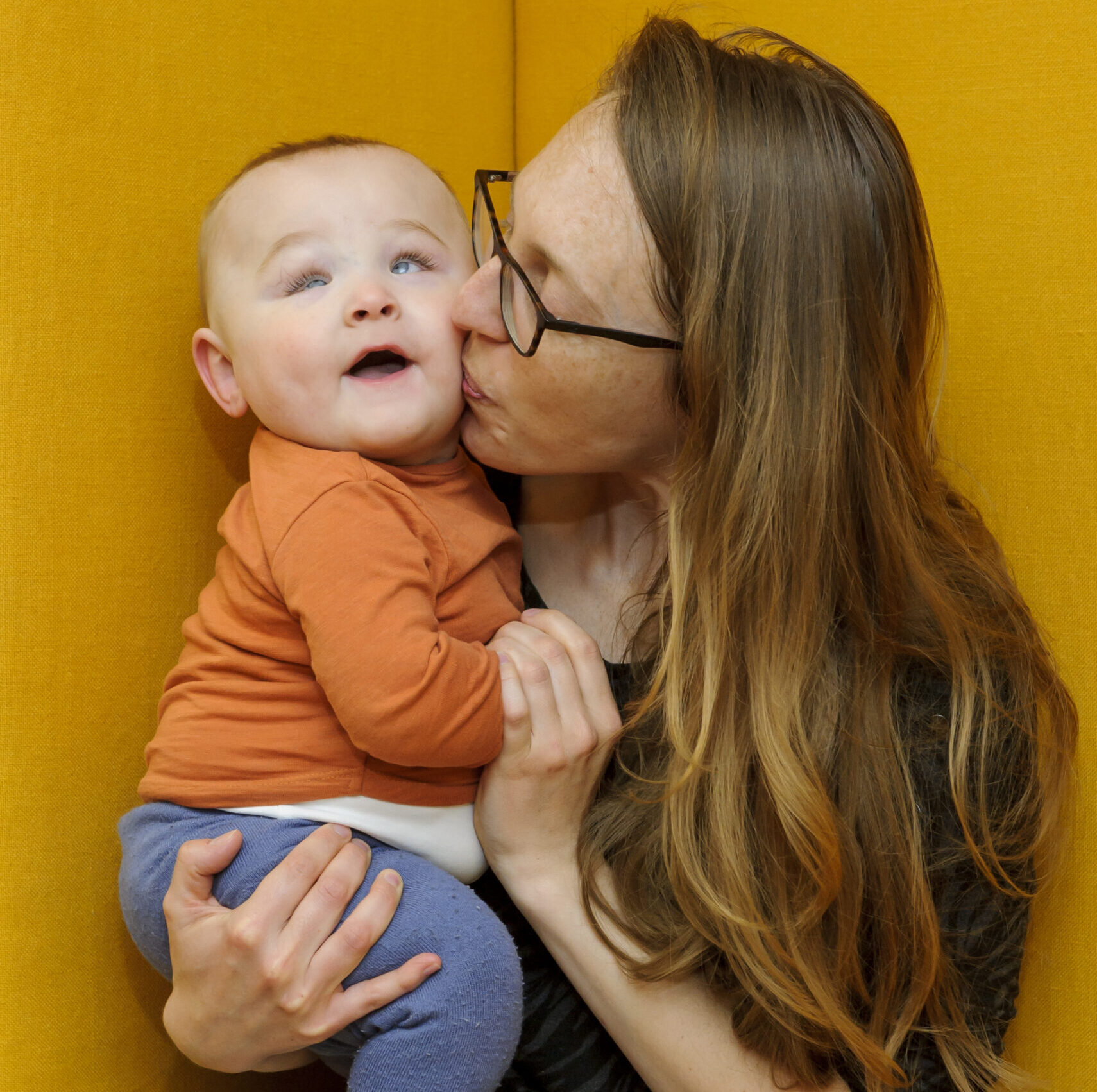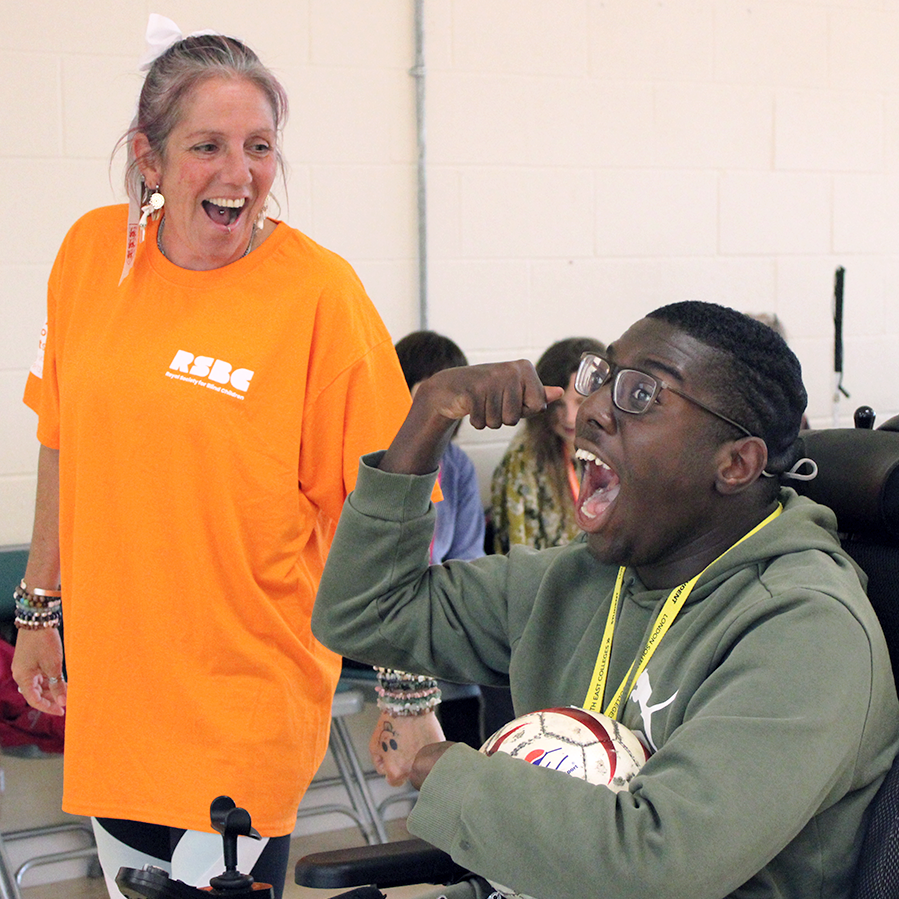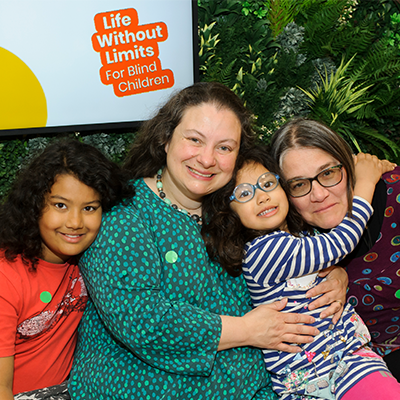George and Nicola’s story
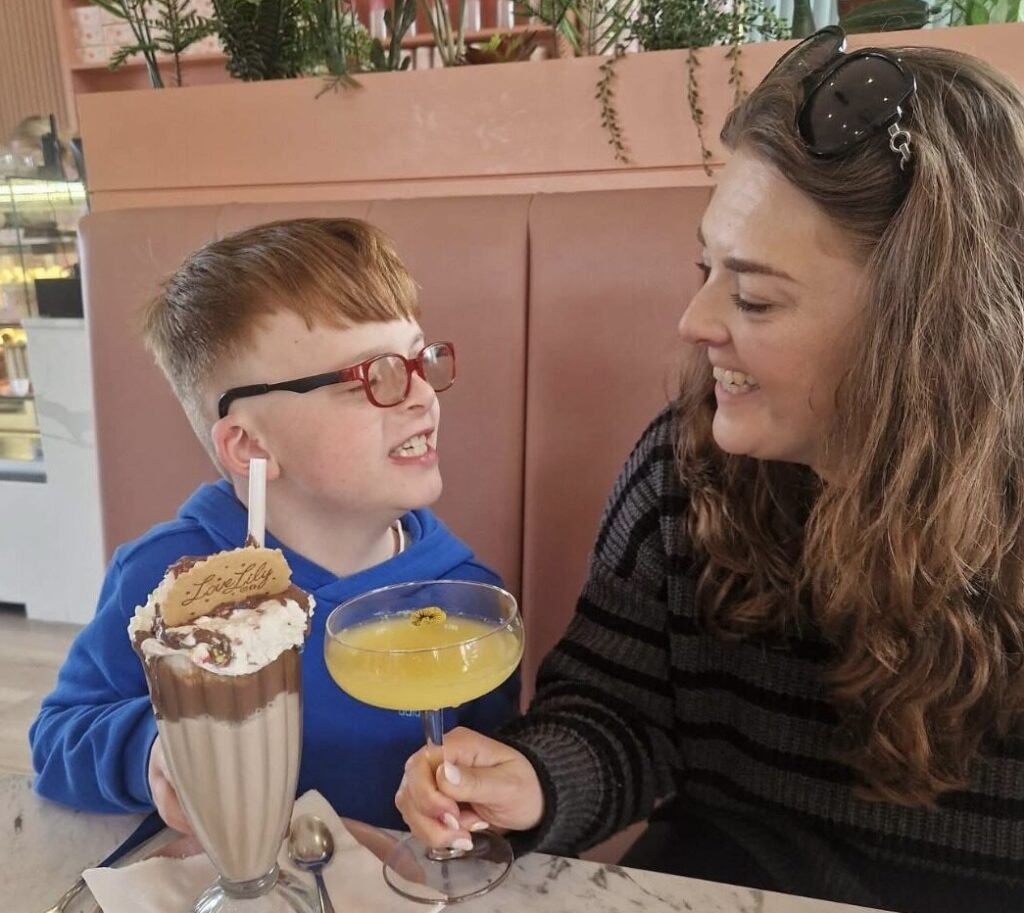
George and Nicola's story
George and Nicola were both born with Axenfeld-Rieger syndrome (ARS), a rare genetic disorder that affects the development of the front part of the eye. George had cloudy corneas and, when he was very young – around 16 to 20 weeks old – he underwent corneal transplants. Unfortunately, one of the transplants failed before he turned two. As a result, George is now registered as severely sight impaired and uses a long cane, though he isn’t keen on using it.
He participates in lots of activities outside school and has a busy, fulfilling life surrounded by friends. He takes piano and swimming lessons, and is about to start scootering lessons. As his mum says: “He’s absolutely obsessed with his scooter!”
George currently attends a mainstream school, though his parents are considering moving him to a special education school in the future – perhaps in a few years’ time. Despite the challenges, George is thriving. Nicola, who works at the same school as a teaching assistant, plays a key role in advocating for his needs, all the while balancing the demands of the family’s busy life with George’s dad.
Unfortunately, George’s vision impairment began to affect his emotional well being when he reached an age where he wanted more independence. He struggled to understand why he did things differently to his friends. His frustrations were centred on tasks like using assistive technology, working at a different pace in school, or requiring help to go to the bathroom in public places. These were the kind of things that led George to feel anxious and made it hard for him to express his emotions.
Nicola, already knowledgeable about the challenges brought by vision impairment due to her own experience with Axenfeld-Rieger syndrome (ARS), had been able to handle many of the challenges the family experienced very well, but the emotional strain George was undergoing needed specialist support and she knew that she and the rest of the family couldn’t provide it on their own.
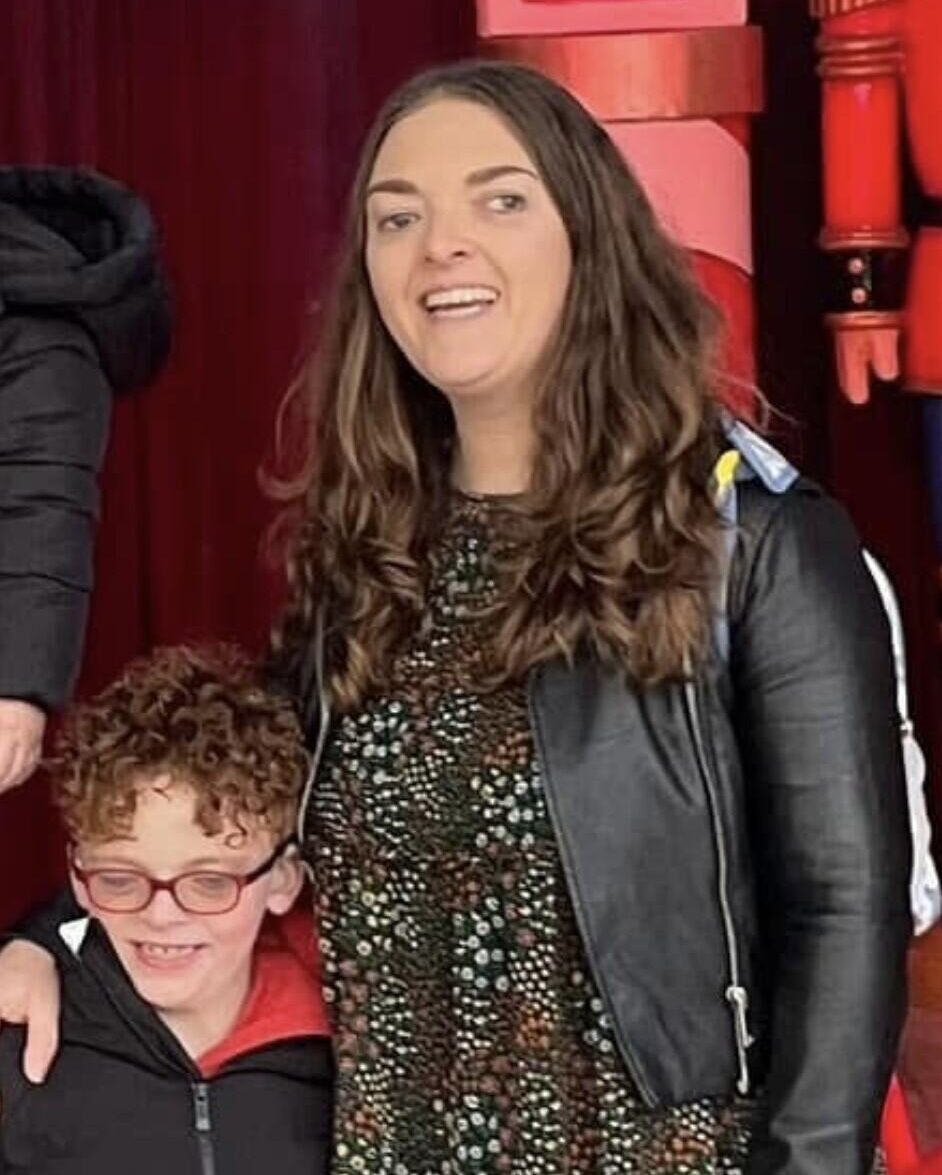
Nicola found out about The Royal Society for Blind Children (RSBC) through the school’s sensory team. She first asked for extra support because George was having issues with the idea of changing year groups over the summer holidays. The charity’s Families First team are ideally placed to help in situations like these, and Family Practitioner, Jeanette, quickly connected with George, helping him to talk about his feelings and learn to manage his anxiety.
Thanks to this support, George was able to share his feelings more openly, find confidence in talking about his differences to other children, and learn how to cope with his frustrations.
The intervention provided by RSBC significantly improved George’s emotional situation. Though he still experiences some anxiety, he’s practising the skills learnt from Jeanette, and the reduction in his overall stress levels has had a very positive influence on his daily life and how he interacts with others. Nicola’s found a real sense of reassurance in knowing that RSBC is there to provide ongoing advice and support as new challenges arise.
That support has also indirectly benefited Nicola herself. It’s alleviated some of the pressures she faced as a parent – although the primary focus was on George, she knew that the charity was ready to give support to families, too, whenever it was needed.
Looking ahead to the future, Nicola’s interested in engaging more with RSBC’s activities, particularly when services and events are accessible in the family’s local area. She’s also ready to seek additional support during transitional phases of George’s life, such as when he moves to a new school. She’s very confident that he’ll access the charity’s services independently in the coming years, with his relationship with RSBC evolving to meet his changing needs as he grows older.
Looking for support, advice and guidance? Find out more about RSBC’s Families First service. Or to our What’s on page for the latest activities for you and your family.
